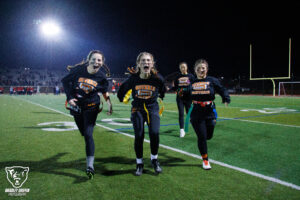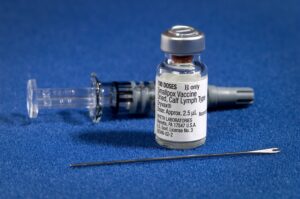By Brayden Haley ’25
Every year on Patriots’ Day in Massachusetts, Boston becomes the host of one of the world’s most well-recognized races. This race is titled the Boston Marathon, and it forces runners to pass through the suburbs of Boston as well as 26.2 miles of road in order to reach the finish line just near Copley Square. This year, over 30,000 individuals registered for the marathon in hopes of proving to themselves and others that they had what it takes to complete one of the most grueling tasks an athlete, runner, or average person can partake in. This year in the 127th running of the race, Evans Chebet managed to defend his previous title from the 2022 Marathon with a jaw-dropping time of 2:05:54.
After beginning in 1897 with a starting field of 15, the Boston Marathon has quickly become one of the largest and most well-known events in the world of long-distance running. In recent years, membership has been in the twenty to thirty-thousands and the race allows any participants over the age of 18 to enter. In addition to the immense competition, runners will have to brave the natural conditions that are unknown until a few days before the race begins. After registering, a runner must be prepared for a scorching sun with blistering temperatures, rain paired with bone-chilling winds, or even traces of snow and sleet.
However, although it brings much excitement and some anxiety to runners as the date of the race approaches, and gives the Red Sox a reasonable excuse to start a few hours earlier, many people actually overlook the importance of the Boston Marathon to the city and the entire state of Massachusetts. As many people may know, on April 15th, 2013, the Marathon was the site of a bombing that occurred near the finish line and took the lives of three individuals while injuring hundreds more. This race, although entertaining for some, may remind others of a tragic past that harmed the lives of thousands. In response to this terrible occurrence, people around the country and even internationally mourned the tragedy of this event. David Ortiz, a current Red Sox player at the time, made his famous speech where he assured Bostonians that this was “our f***ing city” where “nobody can dictate our freedom”. In a sense, the Marathon now serves as a symbol of hope and overcoming for the people of the state and the country.
The Marathon can serve as a place where professionals prove their skills, just as Evans Chebet and many others did, but it is also a place for personal overcoming and running for a cause. For example, a man named Francisco Juarez, an avid runner before he was blinded 28 years ago, thought of this moment as a chance to regain his confidence and prove to himself that his condition won’t hinder his athletic performance. In addition, Harvard students sought to participate in the Marathon through fundraising for a charity of their choice.
All in all, the Boston Marathon is one of the factors that define the city of Boston and many places around it. While people can choose to reflect on its harrowing past, many can look to the present and future and recognize that there are still many good things to come in terms of the race. Until next Patriots’ Day, we’ll continue to honor the motto “Boston Strong” which can be recognized as a beacon of hope that will maintain the optimism and comfort of our capital.






